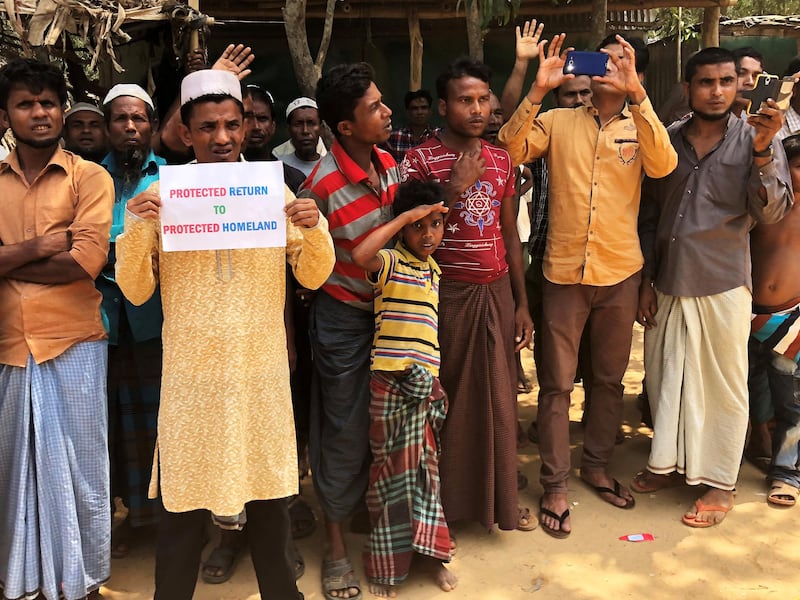Thousands of Rohingya Muslims risk death and disease as the monsoon season approaches in Bangladesh, campaigners warned in a report released on Thursday.
Flooding, landslides and cyclones are expected to destroy many of the temporary shelters in the country's coastal town of Cox's Bazar, home to the hundreds of thousands of Rohingya refugees who began fleeing violence in Myanmar last August.
"There is nothing in the camp that provides shelter, if a cyclone hits there's nothing there that can survive," Francesco Segoni of Doctors Without Borders (MSF) told The National by phone from the refugee camp. "The risk of human lives will be really high."
__________
Read more:
UN says 'ethnic cleansing' of Myanmar's Rohingya is continuing
Myanmar makes proposal to take back Rohingya refugees
Editorial: Aung San Suu Kyi's contempt for the Rohingya was there for the world to see
__________
Cox’s Bazar is one of the most frequently flooded regions of one of the most flood-prone countries on the planet.
MSF warned that 15 per cent of the camp could flood and nearly 200,000 people could be affected by it.
The refugees require urgent evacuations but most have nowhere to go.
The climate change is expected to increase the risk of infections in the camp, home to some 700,000 displaced people.
“The refugees suffer from respiratory and skin infections, diarrhea, chronic illness and psychiatric/psychological disorders,” Mr Segoni said.
Sanitation and hygiene are substandard and when the rainy season begins the chances of malaria and gangrene will increase immensely, the report said.
“The provision of clean drinking water is an absolute priority in the camp: it’s as much a life-saving activity as our medical work,” Mr Segoni explained. “We will be bracing for the worst.”
The report also warned of grave physiological distresses for the refugees.
Various United Nations and humanitarian agencies have visited Bangladesh to address the situation.
Earlier this month the UAE donated Dh7.35 million to the United Nations Refugee Agency in support of the crisis.
The donation will contribute towards a larger UN scheme in Bangladesh – which launched last month – to help 1.3 million individuals, including 884,000 Rohingya refugees and 336,000 host communities by the end of this year.
Earlier this week a UN Security Council team visited the camp. Representatives from the five permanent Security Council members — China, France, Russia, the United Kingdom and the United States — and 10 non-permanent member states joined the delegation.
The Rohingya refugee crisis is the fastest growing in the world with nearly one million individuals - more than half of whom are children – having been forced to flee Myanmar's Rakhine State and seek safe haven in Bangladesh.






